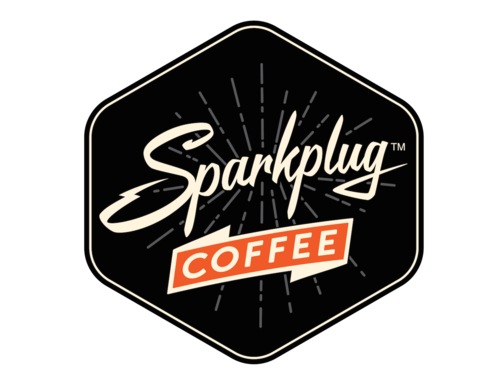We spill the beans about Nicaragua & coffee!
Did you know…
NICARAGUAN COFFEE WAS ALMOST FORGOTTEN FOR 4 DECADES
Until the 1970s, Nicaragua was seen as one of the best Latin American coffee producers. A series of natural disasters and political problems led to its disappearance as a coffee exporter for many years. It’s only been in the past 10 or 15 years that Nicaraguan coffees have been reappearing in North America.
The troubles began with a major earthquake in 1972 and continued with a civil war in the late 1970s and then political troubles (remember the Sandinistas? and the Iran-Contra scandal?) through the 1980s. Hurricane Mitch in 1998 did more damage to the Nicaraguan infrastructure and economy and the country has been slowly rebuilding for the past few years.
The Nicaraguan flag - it's a magical place with a rainbow and sun symbolizing its bright future.
Nicaragua IS A SMALL PRODUCER OF HIGH GRADE COFFEES
In 2021, Nicaragua produced about 2.5 million 60 kg bags of green coffee. This is less than 2% of the world’s coffee production. Nicaraguan coffee production was down a bit in 2020 and 2021, a result of both domestic political troubles and the covid pandemic.
Coffee is mostly grown in the Jinotega, Matagalpa, and Nueva Segovia regions in the north of the country.
Until recently, all Nicaraguan coffee was Arabica and almost all of it is grown at altitudes above 800m / 2500ft. Coffee grown at higher altitudes takes longer to mature, resulting in denser, more consistent and more flavourful beans.
Robusta coffee has been introduced to Nicaragua but makes up less than 5% of total production.
Some of the best coffee from Nicaragua are mostly grown in the mountains of the north-west - high altitude, shade grown and very delicious.
ORGANIC (BUT NOT CERTIFIED) COFFEE
Nicaraguan coffee is shade grown on very small farms (less than 3 hectares or 7 1/2 acres) with organic farming practices, though little is certified organic.
This is because most Nicaraguan farmers are too poor to buy fertilizers and pesticides or to afford the fees for organic certification.
Almost all Nicaraguan coffee is considered shade-grown, planted amongst other trees and offering shelter for birds and animals. Shade grown doesn’t necessarily make the coffee taste better but is better for the planet.
DIFFERENT THAN the NEIGHBOURS
Surprisingly, Nicaraguan coffees are quite distinct from other Central American beans. A typical Nicaraguan coffee is citrusy, bright and delicate - similar to some of the Ethiopian beans in our Sparkplug Coffee blends - and very different from the full-bodied, rich and chocolatey beans we typically see in Central America.
There is tons of variability in coffee beans depending on the specific farm, coffee trees and how the beans are dried and roasted, so these are generalizations, of course!
GAINING RECOGNITION (& $$$) FOR GREAT COFFEE
Buyers are starting to appreciate Nicaraguan coffees and rewarding great farmers with higher coffee prices. In June 2016, buyers at an international auction of Nicaraguan coffees paid US$23.95 per pound for coffee from the Bella Aurora farm in Nicaragua. The average price paid for specialty beans at this auction was US$6.92 which shows the exceptional quality of the coffees. For comparison, the average Arabica green bean coffee price is around US$1.75 per pound.
Canada is the 5th biggest importer of Nicaraguan coffee (after USA, Belgium, Germany and Italy. )
Sources: World Bank Arabica Coffee Stats for pricing info, the International Coffee Organization for trade stats, Specialty Coffee Association of Nicaragua (ACEN), map and basic country info from The CIA's World Factbook, USDA Foreign Agricultural Service Nicaragua: Coffee Annual Report.
Sparkplug Coffee uses Nicaraguan coffee beans in our featured seasonal blends!
Check our our previous seasonal coffees where we’ve used some delicious Nicaraguan beans: the GIMLI, Rock & Roll & Spring Break. Our limited edition seasonal coffee changes every 6 weeks or so - check out where we’ve headed to now!




